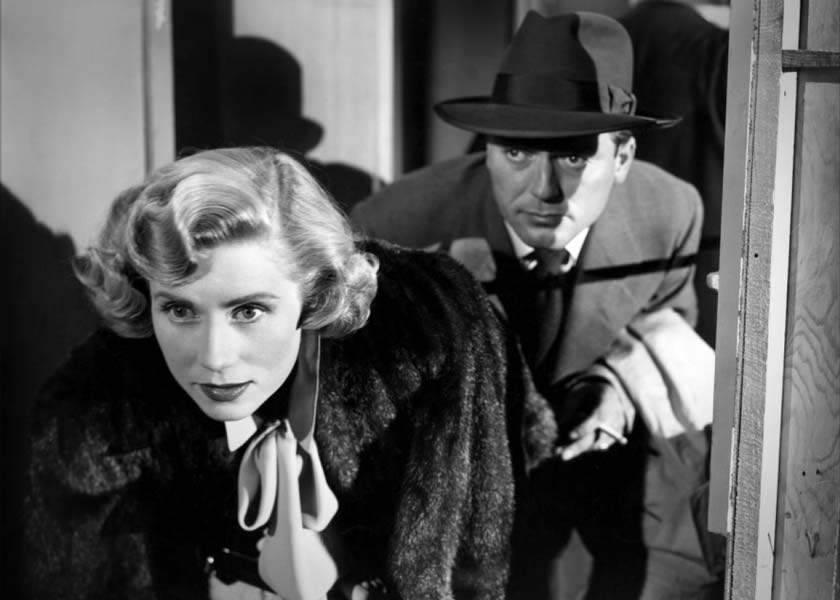Synopsis
Det. Sgt. Walter Brown (McGraw), a tough cop, whose partner has already been murdered on the assignment, protects a gangster's widow (Windsor), on a train from Chicago to Los Angeles. The tough-talking and unpleasant widow is scheduled to testify about her husband's associates to the grand jury. McGraw befriends Tommy (Gordon Gebert),the son of Ann (White), a pretty young widow who is also traveling to Los Angeles. The journey is filled with danger and violence; gunmen on the train are determined to kill the widow. Before the trip ends, a couple of unexpected revelations surprise McGraw.
Discussion
The Narrow Margin exemplifies the tension-packed storyline and hardboiled, cynical script expected of a film noir. The space limitations of the train, which crowds the characters together, increases the tension and suspense. Murderous gangsters stalk the corridors. Marie Windsor, playing the tough and sarcastic widow, is hidden only by the thin walls of a compartment. The possibility of sudden violence follows Charles McGraw's detective through the train. Meeting in a narrow corridor, people slide by one another uncomfortably. Gravel-voiced and hard-looking, McGraw, in his first leading role, is compelling as the tough and determined police office. Windsor, who specialized in forceful, hard-edged women, goes face-to-face with McGraw as they hurl biting wisecracks at each other.
TCM Film Festival, 2013
The Narrow Margin was presented at the TCM Classic Film Festival in
2013, as part of the Riding the Rails
theme. Co-star Jacqueline White and
film historian Eddie Muller (author of
Dark City: The Lost World of Film Noir) discussed the film. The film
was shot in three weeks on a low budget. The direction is inventive in using the
confined space of a train. The train effects, motion and noises, seem real. The
film was made at RKO, and Howard Hughes, the head of the studio, loved it. He
stopped its release because he wanted Fleisher to redo it with a larger budget and
his biggest stars, Robert Mitchum and Jane Russell. Eventually, Hughes relented
and released the film. Its success did a lot for the careers of Fleischer and
Charles McGraw. During their discussion, White talked with Muller about her part
in the film. It was her last film because her husband was not keen about her
career. Fleischer asked her to do the movie. She had appeared in his film
Banjo (1947), in which she acted with a recalcitrant dog. She said
that McGraw was nice although his manner was gruff. He gave her suggestions but
was a no-nonsense actor.
Further Reading

